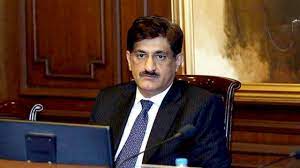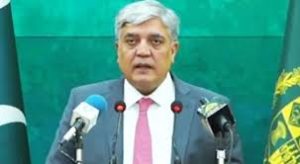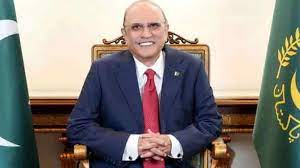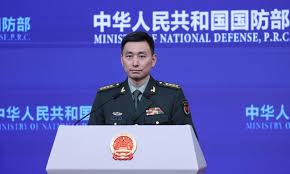Murad says Rs37,000 minimum wage isn’t enough, promises growth

Abdullah Jan
Karachi: Sindh Chief Minister Murad Ali Shah on Saturday said next fiscal year budget for the province had been made amid a difficult period and promised to extend full assistance to the federal government to achieve the 3.6 per cent growth rate.
As Sindh opted for a 30pc wage hike for the lower ranking government employees, the chief minister said he wasn’t satisfied with minimum wage of 37,000 – an obvious reference to the record high and persistent inflation that has shrunk the purchasing power of ordinary people at an alarming rate.
Addressing a post-budget press conference in Karachi, Murad said the total budget size of Rs3,056 billion was 34pc more than the previous one, thus continuing with the tradition of increasing the amount each year. “We will go towards further growth in the next year,” he added.
The chief minister told reporters that the Sindh government was expecting an inflow of Rs1,900bn from the Centre – an amount calculated according to the province’s share under the National Finance Commission (NFC) Award.
About the future development strategy, Murad said they would focus on completing the ongoing schemes, as his cabinet had already decided not to launch new ones.
He noted that the caretaker setup had halted work on new schemes, including those designed for the victims of historic floods that hit the country in 2022.
The chief minister claimed that Sindh’s development budget was more than any other federating unit and that they could have easily added new schemes worth Rs500bn.
“We are in government neither for the first time nor going for the last stint. We believe in long-term planning.”
Murad said PPP Chairman Bilawal Bhutto Zardari had talked about providing free electricity [for those consuming up to 300 units per month] and added that the budget contained provision of solar panels as part of the plan to start supplying free power.
On the occasion, he assured the audience that citizens in every district of Sindh would have access to clean drinking water, adding that the disabled people would have separate hospitals and parks.





